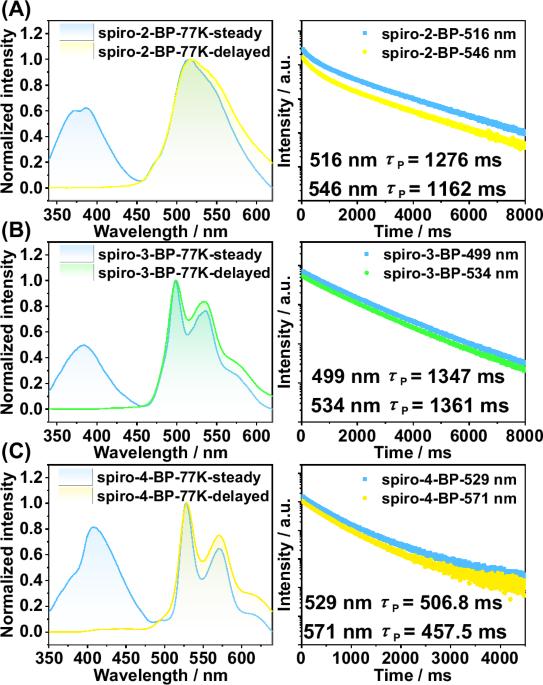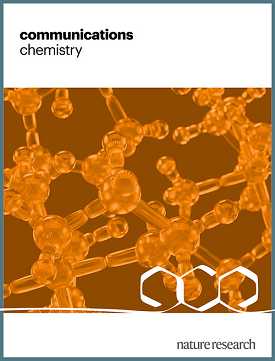A biomimetic phosphor that can build a rigid microenvironment for its long-lived afterglow in aqueous medium
IF 5.9
2区 化学
Q1 CHEMISTRY, MULTIDISCIPLINARY
引用次数: 0
Abstract
Organic phosphorescent materials have great prospects for application, whose performance particularly depends on the preparation method. Inspired by nature’s wisdom, we report a phosphor that can utilize monomers in its environment by polymerization to construct a rigid microenvironment under light illumination, leading to a glow-in-the-dark emulsion with a phosphorescence lifetime of 1 s in water. This phosphor can achieve active growth of the aqueous emulsion with the introduction of more monomers. In the presence of trace amounts of oxygen (which has adverse effects on both polymerization and afterglow), this phosphor can still undergo photo-induced polymerization, removing the influence of oxygen and obtaining afterglow emulsion, demonstrating its adaptability to the environment. This phosphor can also catalyze the polymerization of monomers containing yellow fluorophore, obtaining long-lifetime yellow afterglow emulsion through excited state energy transfer. We have also conducted in-depth studies on the photo-catalytic and phosphorescent properties of this phosphor in model systems. This biomimetic intelligent manufacturing provides a new approach for organic phosphorescent materials and is significant for future applications. Organic afterglow materials show great potential in diverse applications, and their performance particularly depends on their method of preparation. Here, the authors report a biomimetic phosphor that builds a rigid microenvironment to restrain non-radiative decay of triplet excitons, achieving long-lived organic afterglow in water.

一种生物仿生荧光粉,可在水介质中为其长寿命余辉构建一个坚硬的微环境。
有机磷光材料具有广阔的应用前景,其性能尤其取决于制备方法。受大自然智慧的启发,我们报告了一种荧光粉,它可以通过聚合利用环境中的单体,在光照下构建一个坚硬的微环境,从而产生一种在水中磷光寿命为 1 秒的夜光乳液。随着更多单体的引入,这种荧光粉可以实现水乳液的活性生长。在存在微量氧气的情况下(氧气对聚合和余辉都有不利影响),这种荧光粉仍能进行光诱导聚合,消除氧气的影响,获得余辉乳液,这证明了它对环境的适应能力。这种荧光粉还能催化含有黄色荧光团的单体聚合,通过激发态能量转移获得长寿命的黄色余辉乳液。我们还在模型系统中对这种荧光粉的光催化和磷光特性进行了深入研究。这种仿生智能制造为有机磷光材料提供了一种新方法,对未来的应用具有重要意义。
本文章由计算机程序翻译,如有差异,请以英文原文为准。
求助全文
约1分钟内获得全文
求助全文
来源期刊

Communications Chemistry
Chemistry-General Chemistry
CiteScore
7.70
自引率
1.70%
发文量
146
审稿时长
13 weeks
期刊介绍:
Communications Chemistry is an open access journal from Nature Research publishing high-quality research, reviews and commentary in all areas of the chemical sciences. Research papers published by the journal represent significant advances bringing new chemical insight to a specialized area of research. We also aim to provide a community forum for issues of importance to all chemists, regardless of sub-discipline.
 求助内容:
求助内容: 应助结果提醒方式:
应助结果提醒方式:


